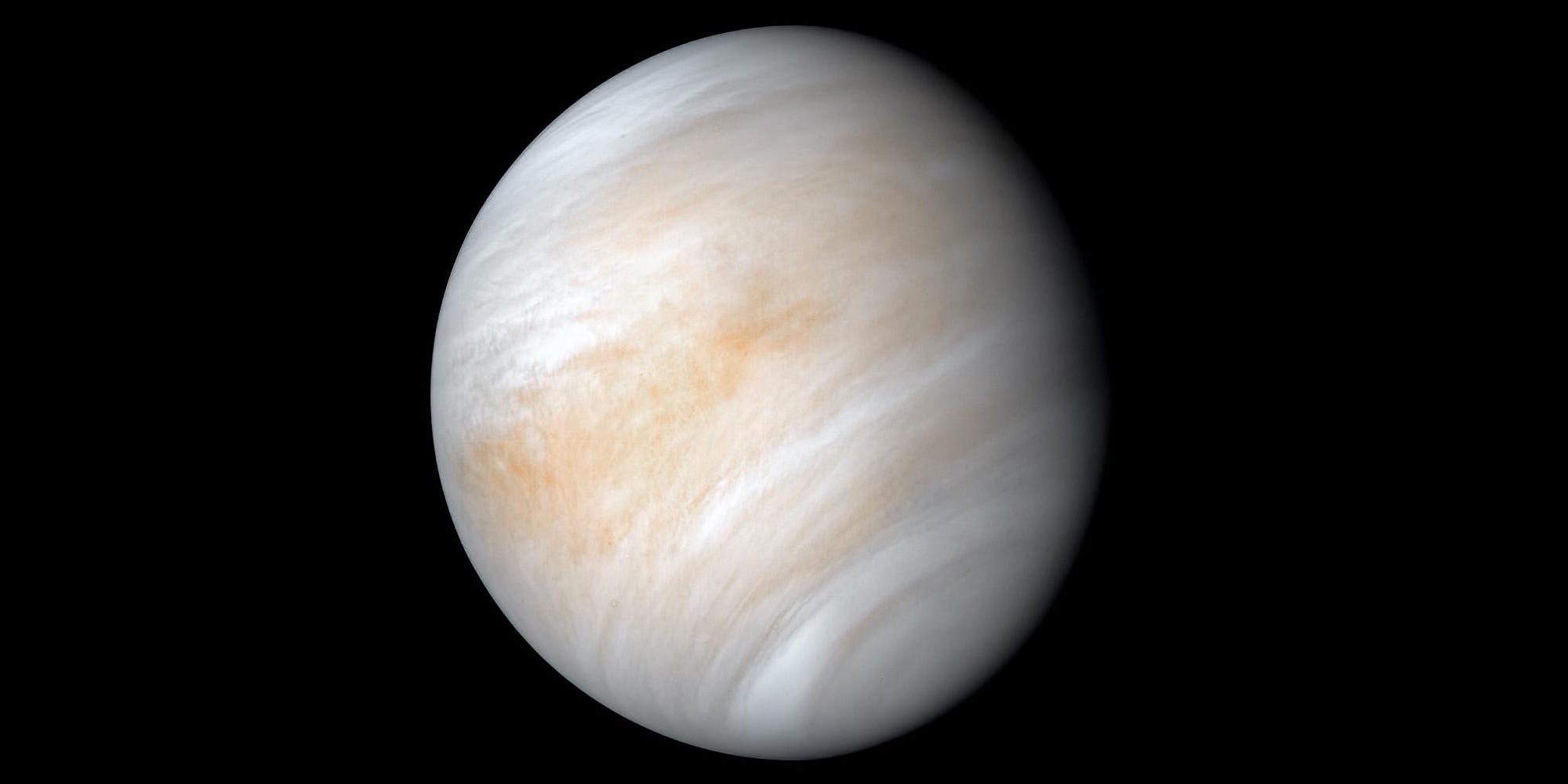
Kevin M. Gill/NASA/JPL-Caletech
- The director-general of Russian space corporation Roscosmos claimed this week that Venus is a “Russian planet.”
- “Resuming Venus exploration is on our agenda. We think that Venus is a Russian planet, so we shouldn’t lag behind,” Dmitry Rogozin told reporters on Tuesday.
- Rogozin also revealed the country’s plans to send its own mission to Venus, on top of an already-proposed joint venture with the United States called “Venera-D.”
- The top space officials comments come on the back of new research published this week, which found that Venus’ clouds could be harboring microbial life.
- Visit Business Insider’s homepage for more stories.
The head of the Russian space agency has staked the country’s claim on Venus, saying this week that it is a “Russian planet.”
Dmitry Rogozin, who is the director general of Russian space corporation Roscosmos, revealed that the country plans to send its own mission to Venus.
This would be on top of an already-proposed joint venture with the United States called “Venera-D” that would include sending an uncrewed space mission to the planet in either 2026 or 2031.
Speaking to reporters at an international helicopter exhibition in Moscow on Tuesday, Rogozin said: “Our country was the first and only one to successfully land on Venus. The spacecraft gathered information about the planet — it is like hell over there,” according to The Times.
“Resuming Venus exploration is on our agenda. We think that Venus is a Russian planet, so we shouldn’t lag behind,” he added, CNN reported.
Rogozin's comments come days after new research suggested that a gas on Earth called phosphine had also been detected in the atmosphere of Venus, meaning the planet's clouds could be harboring microbial life.
In the study, published in the journal Nature Astronomy on Monday, Cardiff University professor Jane Greaves and her team said that their discovery makes Venus a new area of interest.
"Our hoped-for impact in the planetary science community is to stimulate more research on Venus itself, research on the possibilities of life in Venus' atmosphere, and even space missions focused to find signs of life or even life itself in the Venusian atmosphere," Seager said, according to CNN.
Venus is the second furthest planet from the Sun and is considered one of the hottest in our solar system.
The planet's atmosphere is made up almost entirely of carbon dioxide and is the second brightest object in the night sky, after the moon.
The Soviet Union became the first country to successfully land a spacecraft on Venus in 1970. The Venera 7 was one of many probes to be sent to the planet and became the first to transmit data from there back to Earth.
Although it made a successful soft landing, it melted within seconds.
Its successor Venera 9 — also launched by the Russians — took the first and only image of the Venusian surface from the ground-level perspective in 1975.
The country plans to send its own mission to Venus between 2021 and 2030, Rogozin said, according to CNN.
- Read more:
- The universe likely has trillions of planets made primarily of diamonds, scientists confirmed
- Astronomers have discovered a star and potentially habitable planet that are strikingly similar to the sun and Earth
- Astronomers found 6 unusual new planets, including 3 super-Earths, by watching them vaporize and bleed gas into space
- An unprecedented new photo shows 2 planets more massive than Jupiter orbiting a star the size of our sun
